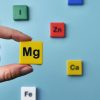
We all get to hear about numerous diseases and health issues, some of which affect you while others affect you mentally. If we talk about the issues related to your mental well-being, the first disease that comes to our mind is Alzheimer’s.
Many people lose hope after getting diagnosed with early-onset Alzheimer’s, but do you know that you can deal with it while staying active? Yes, you heard it right! If you want to know more about it, keep reading.
What Is Early-Onset Alzheimer’s?
While studies have shown no cure for early-onset Alzheimer’s disease, its patients are proving that the best treatment for the disease is to stay as active as possible for as long as possible. We know that one question might be coming to your mind: what is early-onset Alzheimer’s? Well, it is defined as those cases diagnosed in people younger than 65.
Moreover, many health practitioners believe that it is quite challenging to diagnose early-onset Alzheimer’s, even if the patient displays clear signs of that disease. Doctors first assume other problems, and it is only through a process of elimination that Alzheimer’s is eventually diagnosed.
Which Individuals Are at Risk of Developing Early-onset Alzheimer’s Disease?
According to research, early-onset Alzheimer’s disease poses a unique set of challenges, particularly for those who are affected at a younger age. While the exact cause remains elusive, several factors increase the risk of developing this condition.
Therefore, risk assessment for early-onset Alzheimer’s can help individuals and their loved ones proactively manage their health.
Here are some common risk factors for early-onset Alzheimer’s:
1. Genetics
As per the studies, a family history of Alzheimer’s increases the likelihood of developing the early-onset form. Mutations in specific genes, such as APP, PSEN1, and PSEN2, have been linked to inherited cases.
2. Down Syndrome
Similarly, people with Down syndrome are more prone to developing early-onset Alzheimer’s due to a genetic predisposition.
3. Lifestyle Factors
Certain lifestyle choices can also impact the risk of developing Alzheimer’s. Chronic conditions like high blood pressure, diabetes, obesity, and smoking have been associated with a higher likelihood of developing the disease at an earlier age.
4. Environmental Factors
Lastly, exposure to certain environmental toxins, such as heavy metals and pesticides, has been linked to an increased risk of developing Alzheimer’s disease. By understanding these population risks of early onset Alzheimer’s, individuals can make informed decisions about their health and take proactive steps to mitigate the risks associated with early-onset Alzheimer’s disease.
Identifying Early-onset Alzheimer’s Disease Through Diagnosis
Now, identifying the disease plays a crucial role in timely intervention and treatment for early onset Alzheimer’s. With advancements in medical science, distinguishing early-onset Alzheimer’s from other conditions has become more accurate. According to experts, innovative diagnostic tools, such as genetic testing and brain imaging techniques, aid in pinpointing the disease’s presence and progression.
Similarly, recognizing the unique characteristics of early-onset Alzheimer’s, such as cognitive decline in younger individuals, enables healthcare professionals to administer appropriate treatments and support. By combining these early-onset Alzheimer’s differential diagnosis approaches, medical experts can provide targeted care, enhance patients’ quality of life, and potentially slow down the advancement of this challenging neurodegenerative disorder.
Genetic Factors Among the Causes of Early-onset Alzheimer’s
Studies have shown that the early onset Alzheimer’s genetic component is a significant factor in the development of this disease. But through genetic tests for early onset Alzheimer’s, healthcare professionals can identify specific mutations in genes like APP, PSEN1, and PSEN2. These mutations contribute to the genetic predisposition of the disease.
However, it is important to acknowledge that not all cases of early-onset Alzheimer’s have a genetic origin. As mentioned above, there are non-genetic early-onset Alzheimer’s factors, including lifestyle choices and environmental exposures, also play a role.
How Are Early-Onset Alzheimer’s Patients Staying Active?
Cindy Kolick, a professional theater actor, first presented early-stage Alzheimer’s disease at the age of 42 and was later diagnosed with early-onset Alzheimer’s disease at the age of 52. Alzheimer’s disease forced her to resign from her profession; nonetheless, she remained as active as possible. She sings in the chorus at the residential complex she lives in, exercises, and participates in online Alzheimer’s drug studies on a daily basis.
Another Alzheimer’s disease early onset case is that of Pati Hoffman. Hoffman used to have a corporate marketing job but was forced to leave it with an early diagnosis at the age of 55. Hoffman now speaks about her struggles at events and continues to stay active by volunteering at the local food bank and walking.
Doctors and nurses also recommend that early-onset Alzheimer’s disease patients join support groups. As Danielle Arends, a nurse practitioner, stresses, Alzheimer’s disease “can be an isolating disease”. A peer support group, staying active, and medication to treat dementia, will aid in the fight against the signs of early-onset Alzheimer’s.
5 Expert Tips to Stay Active with Early-Onset Alzheimer’s
- Daily exercise is essential for promoting both mental and physical health. You should choose something therapeutic and repetitive.
- If you enjoy yoga, make yoga a daily excursion. If you enjoy swimming, take up swimming. If you enjoy walking, go on walks with your dog or your friends!
- Continue doing what you are passionate about, but make sure that you do it on a smaller scale. In Kolick’s case, this meant continuing singing, just not at the professional level; while in Arends’ case, she continues to fulfill a leadership role by speaking at conferences and events about her personal struggles.
- It goes without saying that early-onset Alzheimer’s requires medical treatment – both therapy and medicine. So, you should follow the directions given by your doctor and take whatever dementia medication is prescribed.
- Attend personal counseling sessions and peer support groups.
Conclusion
All in all, we can say that Alzheimer’s is a disease that affects you mentally, but you can fight it by staying active. Keeping a positive mindset and some exercise is all you need to navigate a healthy and happy lifestyle while suffering from early-onset Alzheimer’s. So, stop sulking and be active!
Reference
- 2012. Early Onset Dementia: A national challenge and future crisis summary. Alzheimer’s Association. https://www.alz.org/national/documents/report_earlyonset_summary.pdf
- 2017. The genes associated with early-onset Alzheimer’s disease. National Library of Medicine. https://www.ncbi.nlm.nih.gov/pmc/articles/PMC5871104/
- 2019. What Causes Alzheimer’s Disease. National Institue of Aging. https://www.nia.nih.gov/health/what-causes-alzheimers-diseas
- 2022. What Are the Signs of Alzheimer’s Disease. National Institue of Aging. https://www.nia.nih.gov/health/what-are-signs-alzheimers-disease
- 2021. Exercise in the early to middle stages of dementia. Alzheimer’s Society. https://www.alzheimers.org.uk/get-support/daily-living/exercise/early-middle-dementia#:~:text=Walking%2C%20gardening%20and%20housework%20are,continue%20these%20activities%20where%20possible.
Also Read
EFFECTIVE WAYS TO PREVENT ACNE FOR CLEAR SKIN IN ADULTS
MAGNESIUM DEFICIENCY SYMPTOMS AND PRACTICAL TIPS TO MANAGE IT
DISCOVERING 5 EFFECTIVE WAYS FOR PREVENTION OF ASTHMA
UNCOVERING TOP 6 EXPERT TIPS FOR A HEALTHY HEART
UNDERSTANDING ENDOMETRIAL CANCER TREATMENT AND DIAGNOSIS




